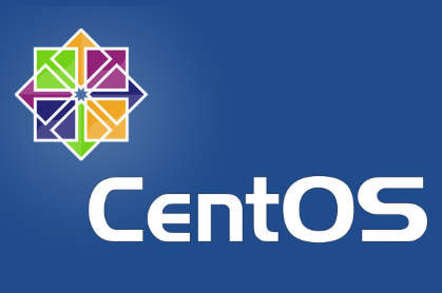
As if web hosting providers didn’t have enough on their plates, here comes yet another bump in the road, albeit one that will require some serious infrastructure updates. I’m talking about the EOL (end of life) of CentOS Project as we know it.
That’s right, CentOS, the operating system of choice for hundreds of web hosting providers across the globe is being tossed in lieu of CentOS Stream. CentOS is a fork of Red Hat Enterprise Linux (RHEL) and has for years been the popular choice for web hosting providers to deploy on its production servers. Why? It’s always been rock solid in stability and compatibility.
The new CentOS Stream will track just ahead of current RHEL releases.
Going forward, CentOS Stream will serve as the upstream (development) branch of Red Hat Enterprise Linux.
- CentOS Linux 7 will be produced through the remainder of the RHEL 7 life cycle (four years).
- CentOS Linux 8 as a rebuild of RHEL , will end at the end of 2021.
Per CentOS:
“CentOS Stream will also be the centerpiece of a major shift in collaboration among the CentOS Special Interest Groups (SIGs). This ensures SIGs are developing and testing against what becomes the next version of RHEL. This also provides SIGs a clear single goal, rather than having to build and test for two releases. It gives the CentOS contributor community a great deal of influence in the future of RHEL. And it removes confusion around what “CentOS” means in the Linux distribution ecosystem.”
They go on to recommend:
“When CentOS Linux 8 (the rebuild of RHEL8) ends, your best option will be to migrate to CentOS Stream 8, which is a small delta from CentOS Linux 8, and has regular updates like traditional CentOS Linux releases. If you are using CentOS Linux 8 in a production environment, and are concerned that CentOS Stream will not meet your needs, we encourage you to contact Red Hat about options.
We have an FAQ to help with your information and planning needs, as you figure out how this shift of project focus might affect you.”
The OS boat has been rocked
This news goes without saying upset many in the hosting industry as they’ve invested heavily in CentOS, and are now forced to contemplate migrating to CloudLinux, Ubuntu or another operating system. The industry was just forced to deal with price increases from cPanel and just recently DirectAdmin, and now this got dropped on them.
The trend going forward
The general consensus across the industry is trending away from Oracle (mainly due to licensing fees) to either CloudLinux or Ubuntu. Pricing from CloudLinux plays well as it’s been neither under nor over charged. Plus, their CEO, Igor Seletskiv, seems to have garnered some trust on web hosting forums for his transparency in how they’re projecting dealing with this in 2021 and in the years to come. Per Igor, “CloudLinux OS has never depended on CentOS®. Our software was and continues to be a fork of RedHat® EL. We base our packages on sources provided by RedHat®. As such, we don’t expect any changes for CloudLinux OS due to the RedHat® announcement.”
Many providers feel like they’ve been burned one too many times
Still, a good number of web hosting providers find it difficult to trust any vendor after getting burned by cPanel and DirectAdmin, and now CentOS. One provider in particular lamented that the future looks good for Windows and that they were going to break out their old version of XP. They were sure hackers have stopped targeting that OS now. Of course they were kidding, but this has raised a furor for many in the industry.
From cPanel
The CentOS Project recently announced several significant changes to its roadmap that may affect your current and future infrastructure deployment strategies. These changes are detailed in their blog post here: https://blog.centos.org/2020/12/futu…centos-stream/
The CentOS Project announced the following changes to their roadmap:
The CentOS Project accelerated the End-of-Life date for CentOS 8. No further operating system updates will be available after December 31, 2021
The CentOS Project announced that CentOS 8 will transform to an upstream (development) branch of Red Hat Enterprise Linux called CentOS Stream, where previous CentOS versions are part of the stable branch. Current best practices indicate that CentOS Stream is not intended for use in production environments.
The CentOS 7 life cycle remains unchanged. Updates and security patches will continue to be made available until June 30, 2024. The life cycle timing is subject to change.
Following these announcements by the CentOS Project, we will continue our rollout of support for CentOS 8, including support for a newly announced fork of Red Hat Enterprise Linux (RHEL) 8, and we will accelerate investment in our development efforts to support additional operating systems:
We are accelerating support for cPanel on Ubuntu LTS. The initiative to support cPanel on Ubuntu LTS is underway, and we expect to deliver a production-ready version in late 2021
We will continue development efforts on cPanel to support CentOS 8. When CentOS 8 is moved to End-of-Life on December 31, 2021, you can transition your CentOS 8 deployments to get updates from 3rd parties that will extend the life of CentOS 8 through 2029; this mirrors the RHEL 8 life cycle roadmap. cPanel has made the commitment to support the recently announced RHEL 8 fork by CloudLinux. More information is available here: https://blog.cloudlinux.com/announci…-by-cloudlinux
We will support CloudLinux OS 8. This additional supported operating system provides an upgrade path for customers with CloudLinux 6 or 7 deployments. Additionally, CloudLinux is another commercially supported operating system that many of our customers benefit from.
CloudLinux includes many advanced features such as improved user resource limitations, increased user visibility, and advanced customer isolation. More information on CloudLinux OS can be found here: https://cpanel.net/extensions/
We will not support CentOS Stream.
We expect to continue to support CentOS 7 through its expected life cycle. End-of-Life is scheduled for June 30, 2024.
If you are leveraging CentOS 6 and you would like to extend support for that operating system, there are extended life cycle options available from CloudLinux that we support and have available in the cPanel Store. More information is available here: https://cpanel.net/extensions/
While the CentOS Project’s announcements are unsettling, we are committed to supporting you, your business, and your customers.
As we reach critical delivery milestones in our support of cPanel on CentOS 8, CloudLinux 8, and Ubuntu LTS, we will provide you with timely updates.
In the meantime, we remain ready to help. If you have questions, please email Customer Service at cs@cpanel.net.
– The cPanel Team
What about Rocky Linux?
There has been some discussion concerning migrating to Rocky Linux, but the general consensus is that in 3 years, Rocky Linux will not be able to staff enough full time developers to maintain course (5 to 10). Of course, there remains concern that CloudLinux may pull away from this project, further complicating the OS landscape. CloudLinux does say that providers would be covered for at least 8 years. “If you are running CentOS 8 – we will release an OS very similar to CentOS 8 based on RHEL 8 stable. We will provide stable and well tested updates until 2029 – totally free.”
And then there’s life cycle to content with
CloudLinux supports the same life cycle policy as RHEL. Using a supported operating system is critical to maintaining a stable server environment. Currently, the following versions are supported:
Operating System Release Date End of Life and Support
CloudLinux 8 Mar 17, 2020 May 31, 2029
CloudLinux 7 Apr 1, 2015 Jun 30, 2024
CloudLinux 6 Feb 1, 2011 Nov 30, 2020 (Extended Support until June 30, 2024
Some important points about CloudLinux
It does not compete with CentOS outside of shared hosting, and even there, they prefer CentOS to Ubuntu or Debian. Why? Conversion from CentOS to CloudLinux takes all of five minutes, but converting from Ubuntu is impractical.
CloudLinux live patching and ELS support products generate most of their revenue on CentOS servers outside of shared hosting, so for them high quality, free RHEL binary compatible OS is a must.
CloudLinux OS maintainers have announced that they’ll be releasing a 1:1 replacement for CentOS in Q1 2021. The new fork will be a “separate, totally free OS that is fully compatible with RHEL 8 and future versions.”
In conclusion
Only time will tell, but we do know that the web hosting industry has been turned on its head once again. It’ll be interesting to see which providers will turn to Rocky Linux, CloudLinux, Ubuntu, Debian or any number of other operating systems going forward.
And what does the future hold for CentOS Stream?
BROUGHT TO YOU BY PROLIMEHOST
We’ve been in the web hosting industry for over a decade, helping hundreds of clients succeed in what they do best and that’s running their business. We specialize in Virtual Private Servers (VPS) and dedicated servers, with data centers in Los Angeles, Denver & Singapore.
VPS SERVICES: LIGHTNING FAST SSD VIRTUAL SERVERS
Our Virtual Private Servers all feature high performance Xeon processors and SSD storage in a RAID10 configuration to optimize your server’s performance, which dramatically enhances visitor experiences on your site.
That speed is backed by unparalleled 24/7 support, featuring both outstanding response AND resolution times to maximize your uptime.
Now is the time to join the ProlimeHost virtual private server revolution.
DEDICATED SERVERS: BACKED BY A 99.9% SLA NETWORK UPTIME GUARANTEE
We only use enterprise-class hardware in our dedicated servers [1] and offer a four (4) hour hardware replacement. Throw in IPMI for remote management, support for public and private networks, free operating system (OS) re-installs, and SATA, SAS & SSD (including NVMe) storage. Call 1-877-477-9454 or contact us [2]. For everything from gaming servers to cheap dedicated servers, we’re here to help.
- Building New Data Centers - April 22, 2025
- CPU Performance in Dedicated Servers - April 18, 2025
- Starting a Hosting Business? Some Tips - April 17, 2025



